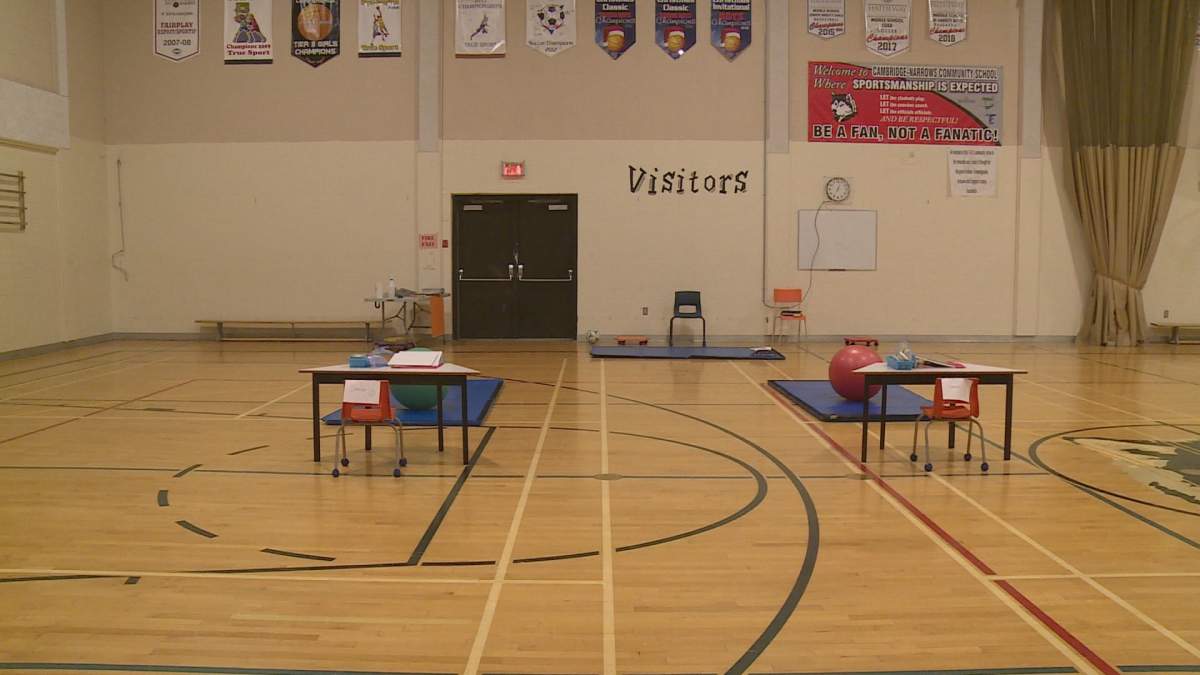Teachers in rural villages and major cities across New Brunswick are struggling to engage with students online as the page turns on what has been an unprecedented school year.

For the first time since the pandemic closed schools on March 13, teachers went back to the classroom. They say the silence in the empty hallways is an unfamiliar sensation.
“We miss our students, we want to be in classrooms and certainly this is not ideal,” said Oromocto High School teacher Natalie Mombourquette.
At Cambridge Narrows Community School in rural New Brunswick, four students with learning accommodations have returned to class to maintain their capacity for learning and socialization. Due to internet connectivity limitations, many students at Cambridge-Narrows cannot participate in online learning.
“If it’s a cloudy day, or if the weather is really bad, it’s even harder to get connection,” said Amber Bishop the Principal of Cambridge-Narrows Community School.

Get daily National news
The school teaches kindergarten to Grade 12 and is nestled in the heart of cottage country, at the banks of Washedemoak Lake. The village school has nine students graduating in 2020, but there is still a shortage of iPads and laptops for those without access.
“It has been rolled out by the minister which was a fantastic initiative that came through, but we’re still trying to get that technology out into the hands of the students,” said Bishop.

However, some students with full access to online learning have simply lost interest according to Bishop. Engagement is also an issue in Oromocto.
Mombourquette, a teacher of economics and political science, says students disinterest is due to an abundance of full-time jobs in fast food restaurants and grocery stores.
“It makes it difficult, often they are signing in at 8 pm , they are working late at night and teachers to have those conversations with them, they have to be on at night as well, said Mombourquette.
READ MORE: New Brunswick purchases iPads, laptops to assist students learning at home
iHub Learning Inc. is a not-for-profit organization that collaborates with private and public sectors to provide support to innovative educational initiatives within the New Brunswick Anglophone public education system.
They surveyed 150 parents in New Brunswick about the impacts of home learning. The question “My child is more engaged with learning done remotely than when they are at school” had 54 per cent of parents answer strongly disagree, while 0.7 per cent responded they strongly agree.
To increase engagement during the pandemic, the CEO of iHub Learning Inc. is suggesting skipping worksheets, and teaching your kid a hands on trade such as construction or woodworking.
READ MORE: Schools to remain closed in New Brunswick, school year not extended
“Think of the mathematics involved, the planning involved, even reading and digital use, you’ve got to collaborate, and you have to be creative,” said Dr. Ross Leadbetter the CEO of iHub Learning Inc.
For now, educators are mindful about placing too much academic pressure on the backs of students, but say lack of engagement won’t fly in the fall. School districts are awaiting the provinces plan for when students return to the classroom.
“We’re kind of in a holding pattern, there’s a lot of balls in the air and people are trying to put together a program that is so unknown because we can’t predict anything,” said Bishop.









Comments